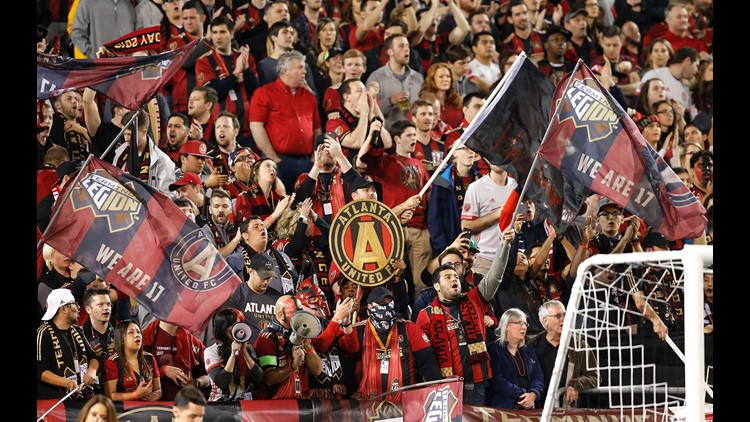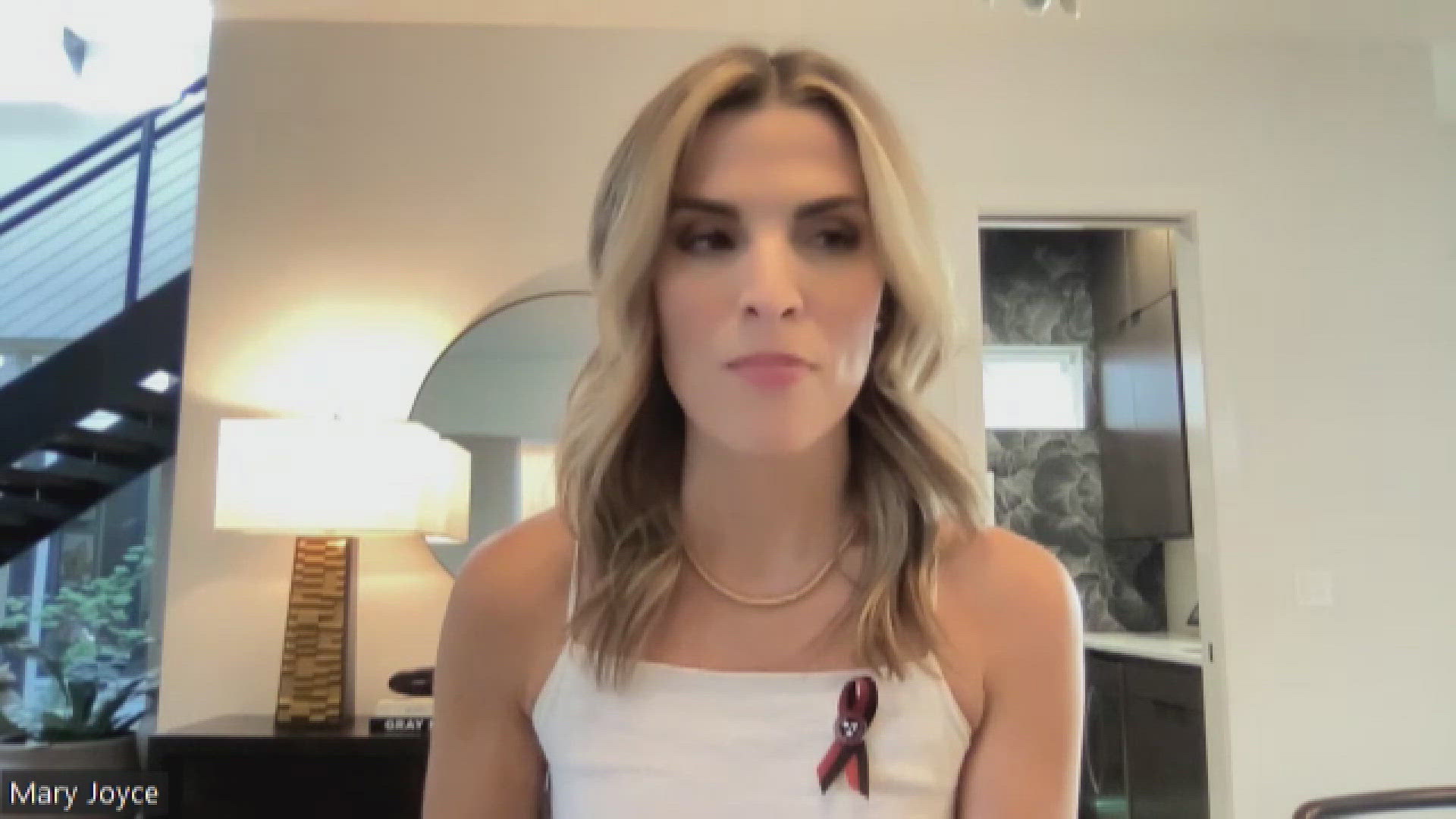CINCINNATI
Club: Futbol Club Cincinnati (FC Cincinnati for short – brand tweaks appears likely if selected for MLS, and could be renamed “Fussball Club Cincinnati” in order to play off the city’s German heritage).
Club history: Formed in late winter 2015 and launched publicly in August 2015. The club played its first match in March 2016 and currently plays home matches in Nippert Stadium, the University of Cincinnati’s century-old college football venue (capacity 32,000+). In winter 2017, the club invested more than $2 million to renovate Nippert to better accommodate soccer and bring the venue up to FIFA specifications. FC Cincinnati enjoyed success on the field in each of its first two seasons (advanced to Lamar Hunt U.S. Open Cup semifinal in 2017) and shattered USL single-game and single-season attendance records. In a nod to the club’s and city’s soccer successes around FC Cincinnati, the city was awarded a U.S. women’s national team “friendly” match against New Zealand in September (FC Cincinnati helped stage the match). FC Cincinnati has been competitive with existing MLS teams in terms of attendance and on-field performance. The team was recognized by some of U.S. soccer’s most influential power brokers as a success and worthy of MLS consideration within months of beginning play in 2016.
Ownership: A nine-person ownership group headed by majority owner Carl Lindner III, Co-Chief Executive Officer, Co-President and Director, American Financial Group. Jeff Berding, a former Cincinnati City Councilman and Cincinnati Bengals (NFL) executive, has acted as the club’s president and general manager (in addition to minority owner). Berding’s responsibilities have focused mainly on winning the MLS expansion bid but he’s also had his hands in everything from negotiating player contracts and TV deals to lobbying local elected officials for public money to cover the cost of infrastructure improvements related to the team’s soccer-specific stadium proposal.
Ownership contribution to stadium: Team ownership is making a $200 million private investment to cover the costs of the stadium construction.
City size: 298,800 (2016 U.S. Census estimate); Cincinnati metro-area: 2.16 million.
TV market size (ranking): No. 36
Stadium proposal: A soccer-specific, 21,000-seat venue in the eastside Cincinnati neighborhood of Oakley is proposed and will be/was presented to MLS officials. FC Cincinnati chose Oakley, on the site of the former Cast-Fab factory, but with the caveat that the public would need to cover the $70 million to $75 million infrastructure cost for roads, sewers and utilities. Stadium plans were briefly amended this autumn to accommodate 25,000 spectators but the capacity was slashed back to 21,000 after concerns over public financing came into view.
Average attendance thus far: 21,199 for 2017 USL matches (21,696 for all competitions including U.S. Open Cup, and 477,331 total attendance over 22 combined matches in 2017).
Public-Private arrangement for stadium (how much money/infrastructure): City of Cincinnati and Hamilton County officials voted to contribute a combined $51 million in public financing to support necessary infrastructure improvements in Oakley to accommodate the FC Cincinnati stadium and other possible development opportunities in the neighborhood. FC Cincinnati is pursuing public dollars from the State of Ohio to help close an anticipated funding gap for the infrastructure improvements.
Professional sports franchises already in the market: Cincinnati Bengals (NFL); Cincinnati Reds (MLB); Cincinnati Cyclones (ECHL)
-- Pat Brennan, Cincinnati Enquirer
DETROIT
Club: A franchise name has not been established for the Detroit bid.
Club history: In April 2016, Michigan-bred billionaires Tom Gores and Dan Gilbert joined forces in an effort to bring a fifth major professional sports franchise to Detroit. Detroit’s soccer history includes a failed venture with the Detroit Express of the now-defunct American Soccer League. In 2003, Dan Duggan, CEO and chairman of the development soccer team, Michigan Bucks, launched a campaign to bring MLS to Detroit. The effort failed, in part, because no investor stepped forward to build a soccer-specific outdoor stadium in the 25,000-seat range.
Ownership: Dan Gilbert, owner of the Cleveland Cavaliers and founder and chairman of Quicken Loans, Inc.; Tom Gores, owner of Detroit Pistons and founder and CEO of Platinum Equity; William Clay Ford family, owner of Detroit Lions.
Ownership contribution to stadium: The Ford family has offered Ford Field, home of the NFL’s Detroit Lions, as the home stadium for the Detroit MLS expansion team.
City size: 672,795 (2016 estimate); Detroit metro-area: 4.3 million.
TV market size (ranking): No. 13.
Stadium proposal: Ford Field, with a football capacity of more than 65,000, became the proposed home site for the MLS franchise when the Ford family joined the Detroit bid in November. The initial plan was to build a 23,000-seat soccer stadium at the failed Wayne County jail site, located on Gratiot Avenue in the Greektown area of downtown Detroit, where Gilbert and Gores touted a $1 billion development project. After that fell through, the Detroit-based architectural firm, Rossetti, determined Ford Field could be adjusted for soccer specifications.
Average attendance thus far: N/A
Public-Private arrangement for stadium (how much money/infrastructure): N/A
Professional sports franchises already in the market: Detroit Lions (NFL); Detroit Pistons (NBA); Detroit Red Wings (NHL); Detroit Tigers (MLB).
-- George Sipple and Vince Ellis, Detroit Free Press
NASHVILLE
Club: Nashville SC
Club history: In August 2016, businessman Bill Hagerty, now the U.S. ambassador to Japan, formed a steering committee to pursue an MLS franchise. John R. Ingram, chairman of Ingram Industries Inc., emerged in December 2016 as the lead investor of Nashville's proposal for an expansion team. Meanwhile, the United Soccer League awarded Nashville a franchise. That team, Nashville SC, is set to begin play in 2018. The Ingram-led group later bought that franchise . It’s the same ownership leadership group pursing the MLS expansion team.
Ownership (key players): John Ingram – Chairman of Ingram Industries Inc. and CEO Nashville Soccer Holdings; Wilf Family – owners of the Minnesota Vikings; Turner Family – Managing Partners of MarketStreet Enterprises.
Ownership contribution to stadium: $25 million up front, plus $9 million a year over 30 years to cover bonds for stadium construction.
City size: 660,338 (2016 estimate); Nashville area MSA: 1.8 million
TV market size (ranking): No. 29
Stadium proposal: Nashville and the team owners have proposed a 27,500-seat,$275 million soccer specific stadium on the site of the city’s fairgrounds.
Average attendance thus far: N/A
Public-Private arrangement for stadium (how much money/infrastructure): The city plans to issue bonds to cover the construction of the stadium, an initial $225 million in bonds, followed by two separate $25 million general obligation bond deals to pay for fairgrounds upgrades and infrastructure work. Under the stadium plan, the ownership group would pay $25 million up front and $9 million a year over 30 years to help retire the city’s annual $13 million debt for the $225 million bond issuance.
Sales tax revenue generated by the stadium, as well as a $1.75 ticket tax that would increase over time, is designed to cover the remaining $4 million. The city would be on the hook to pay the difference if projections fall short. The city would cover the gap for years from five through 10 of the stadium up to $3 million.
Professional sports franchises already in the market: Tennessee Titans (NFL); Nashville Predators (NHL); Nashville Sounds (Triple-A baseball); Nashville SC (United Soccer League, to start in 2018)
-- Duane Gang, The Tennessean
SACRAMENTO
Club: Sacramento Republic FC
History: Republic FC first took the field in 2014, drawing sellout crowds in the United Soccer League and breaking league attendance records. The team won the USL title in its first year.
Ownership: Kevin Nagle, pharmaceutical executive, Kings part owner and managing partner of Sac Soccer & Entertainment Holdings; Jed York, 49ers CEO; Mark Friedman, developer, Fulcum Property Group, and Kings minority owner; Meg Whitman, Hewlett-Packard CEO, and husband Griffith Harsh;other limited partners.
Ownership contribution to stadium: Republic FC has said it will privately finance the $226 million stadium in the railyard development north of downtown Sacramento.
City size: 495,234
TV market: 20th
Stadium proposal: Republic FC has approval from the city of Sacramento to construct a stadium seating nearly 20,000. The design for the stadium – with a fully enclosed bowl to trap fan noise – was inspired by stadiums in Europe and South America. Team officials have already begun preparing the site for construction and said the project would be open in time for the 2020 Major League Soccer season.
Average attendance: Republic FC averaged 11,569 for home matches in 2017.
Public-private arrangement: Republic FC owners have said they intend to privately finance the soccer stadium’s construction cost, although they are crediting public agencies with $46 million in infrastructure improvements that have been completed around the stadium in the project’s $226 million price tag.
Professional sports in the market: Sacramento Kings (NBA), Sacramento River Cats (Triple-A baseball).
Development planned around stadium: The Major League Soccer stadium would help anchor the redevelopment of the 244-acre downtown railyard, among the largest urban infill developments in the nation. The project also includes an approval to build 10,000 residences, a 1.2 million-square-foot hospital complex, 3.8 million square feet of office space, museums, stores and 34 acres of parks.
-- Ryan Lillis, The Sacramento Bee



